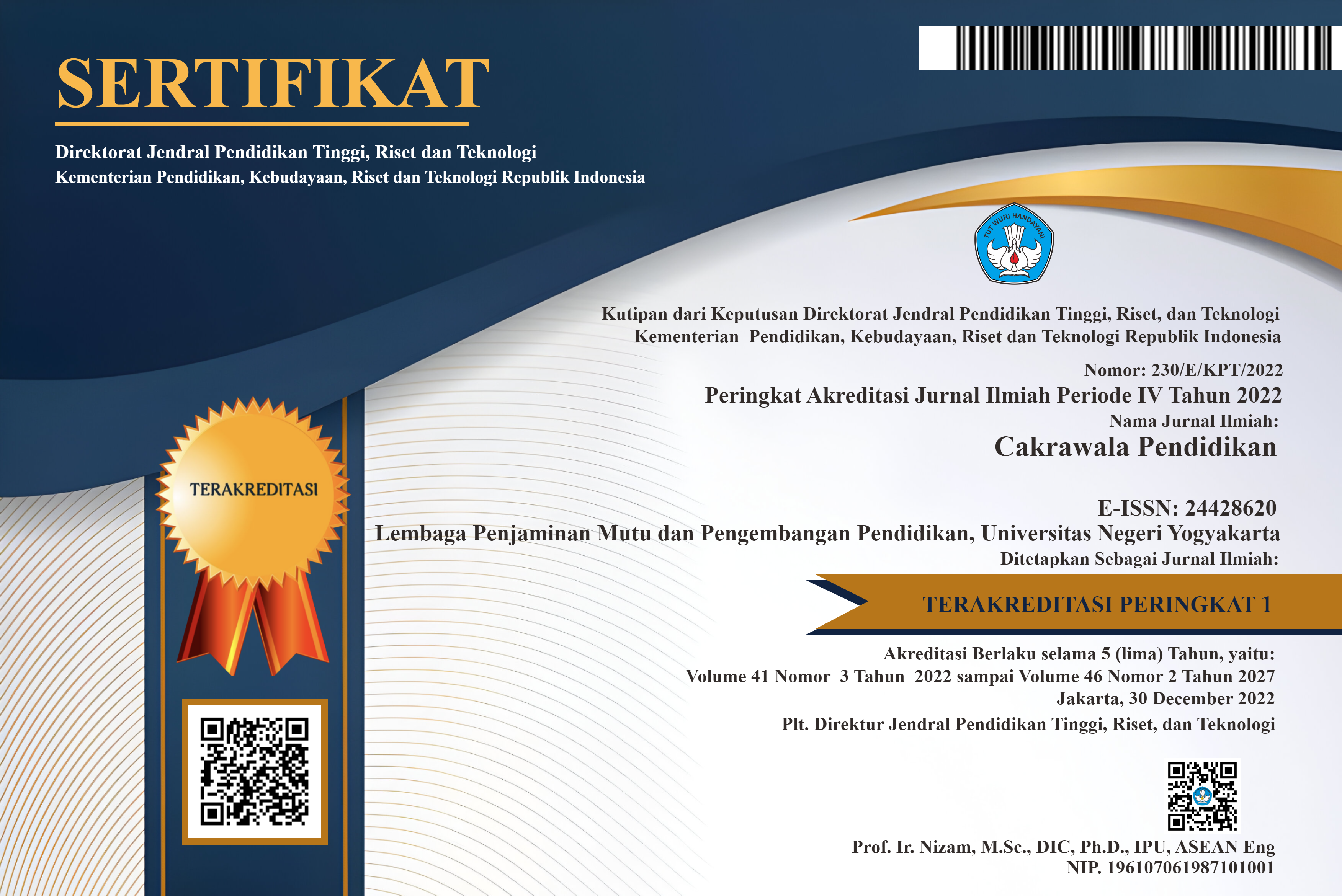Implementation study of authentic assessment in physical education in Indonesia and Malaysia
Downloads
Downloads
Akib, H. (2010). Implementasi kebijakan: Apa, mengapa, dan bagaimana. Jurnal Administrasi Publik, 1(1), 1-11. https://doi.org/10.26858/jiap.v1i1.289
Anwar, M. H., Rachman, H. A., Purwanto, J., & Sudardiyono, S. (2020). Contributions of physical education teachers' competences to students' learning achievements. Jurnal Keolahragaan, 8(1), https://doi.org/10.21831/jk.v8i1.30769
Araujo, M. C., Carneiro, P., Cruz-Aguayo, Y., & Schady, N. (2016). Teacher quality and learning outcomes in kindergarten. The Quarterly Journal of Economics, 131(3), 1415–1453. https://EconPapers.repec.org/RePEc:oup:qjecon:v:131:y:2016:i:3:p:1415-1453
Asnawati, H., Tamsah, S., Tinggi, I., Ekonomi, A., Makassar, I., Sakkir, G., Tinggi, M. S. & Saleh, F. (2021). The influence of teaching experience and education level of teacher performance through workloads at formal education unit (SPF) of senior high school (SMAN). Proceedings of the International Conference on Industrial Engineering and Operations Management Sao Paulo, Brazil, April 5 - 8, 2021
Brandenburg, R., McDonough, S., Burke, J. & White, S. (Eds.). (2016). Teacher education: innovation, intervention and impact. Springer. https://doi.org/10.1007/978-981-10-0785-9.
Hariadi, H. (2016). Pengembangan instrumen penilaian otentik keterampilan gerak dasar manipulatif di sekolah dasar. Dissertation. Program Studi Pendidikan Olahraga Program Pascasarjana Universitas Negeri Jakarta
Klassen, R., & Chiu, M. M. (2010). Effects of teachers' self-efficacy and job satisfaction: Teacher gender, years of experience, and job stress. Journal of Educational Psychology, 102, 741-756. http://dx.doi.org/10.1037/a001923
Mubarok, S., Zauhar, S., Setyowati, E., & Suryadi, S. (2020). Policy implementation analysis: Exploration of George Edward III, Marilee S Grindle, and Mazmanian and Sabatier theories in the policy analysis triangle framework. Journal of Public Administration Studies, 1(1), 33-38
Mulyadi, D. (2015). Perilaku organisasi dan kepemimpinan pelayanan. Alfabeta
Putra, R.H., & Khaidir, A. (2019). Concept of George C. Edwards III on implementation of regional regulations No. 12 of 2017 concerning youth in granting youth service in West Sumatera. International Journal of Progressive Sciences and Technologies, 15(1), 236-242
Soebarna, A., Juditya, S., & Gunawan, G. (2017). Penilaian autentik (authentic assesment) dalam pembelajaran penjas. Jurnal Penjakora, 4(1), 103-116
Sofyan, M., & Kuntjoro, B.F.T. (2021). Studi implementasi sistem penilaian terhadap mata pelajaran pendidikan jasmani olahraga dan kesehatan pada sekolah inklusi di Kabupaten Gresik. Jurnal Pendidikan Olahraga dan Kesehatan, 9(1), 37 – 42
Syakhrani, A. W. (2022). Sistem pendidikan di negara Malaysia. Educational Journal: General and Specific Research, 2(2), 320–327
Jurnal Cakrawala Pendidikan, Jurnal Ilmiah Pendidikan, with ISSN: 0216-1370, is published by the Institute of Education Development and Quality Assurance (LPPMP UNY). Cakrawala Pendidikan has been recently has been re-accredited by Indonesian Ministry of Education and Culture decision Number 230/E/KPT/2022 which is valid for five years since enacted on 30 December 2022.




























